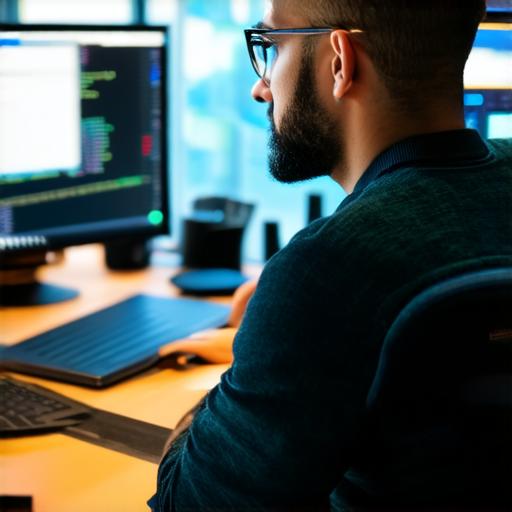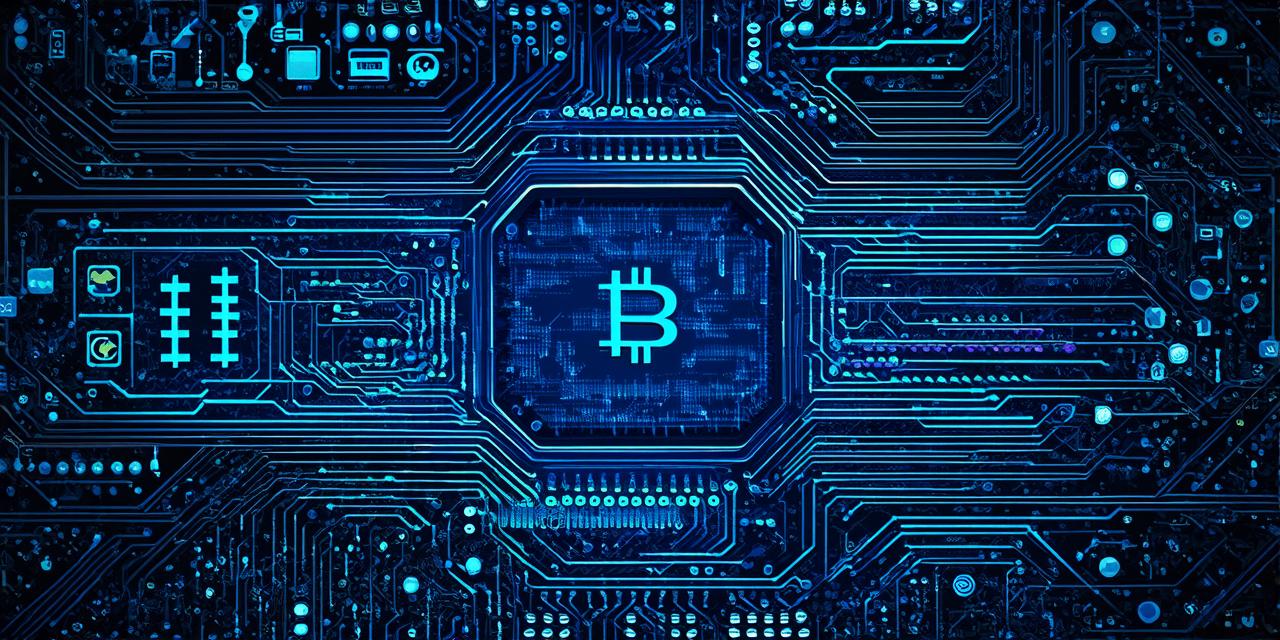Blockchain technology is revolutionizing the way we interact with data and each other. It has numerous applications in various fields such as finance, healthcare, supply chain management, and more. As a result, there is a growing demand for blockchain developers who can create secure, efficient, and scalable blockchain solutions.
Understanding Blockchain Development
Before diving into the steps of becoming a blockchain developer, it is important to have a basic understanding of what blockchain technology entails. A blockchain is a decentralized and distributed ledger that records transactions on multiple computers. It is designed to be secure, transparent, and immutable, meaning that once data is recorded on the blockchain, it cannot be altered or deleted.
Blockchain development involves designing, building, and maintaining blockchain applications and systems. Blockchain developers are responsible for creating smart contracts, which are self-executing contracts with the terms of the agreement directly written into lines of code. They also work on improving the scalability, security, and performance of blockchain networks.
Steps to Becoming a Blockchain Developer
Step 1: Learn Programming Languages
To become a blockchain developer, you need to have a strong foundation in programming languages such as Java, Python, Solidity, and Go. Solidity is the primary language used for smart contract development on the Ethereum blockchain, while Go is used for building scalable and secure blockchain networks. Python is another popular programming language used in blockchain development due to its simplicity and ease of use. Learning these programming languages will give you a solid foundation to build on as you progress in your career.

Step 2: Understand Blockchain Technology
It is important to have a good understanding of the basics of blockchain technology before diving into blockchain development. You can start by reading books, articles, and blogs on the subject. There are also many online courses and tutorials available that cover the fundamentals of blockchain technology.
Some recommended resources include:
- “Mastering Bitcoin” by Andreas Antonopoulos
- “Blockchain: The New Money” by Don and George Calvin
- “The Blockchain Book” by James Cromwell-Smith
Step 3: Build Projects
Building projects is an essential part of becoming a blockchain developer. It allows you to apply your knowledge and skills in a practical setting. You can start by building simple blockchain applications such as decentralized storage systems or supply chain management systems.
Some popular platforms for building blockchain projects include:
- Remix – An online IDE for Ethereum smart contract development
- Truffle – A suite of tools for building and testing smart contracts on the Ethereum blockchain
- Hyperledger Fabric – A platform for building and deploying enterprise blockchain applications
Step 4: Get Certified
Getting certified in blockchain development can demonstrate your knowledge and expertise to potential employers. There are several certification programs available, including:
- Certified Ethereum Developer (CED) by ConsenSys
- Certified Bitcoin Professional (CBP) by Cryptocurrency Certification Consortium
- Certified Blockchain Developer (CBDev) by IBM
Step 5: Join the Community
Joining the blockchain community is an excellent way to learn from other developers, stay up-to-date with the latest developments in the field, and find job opportunities. Some popular platforms for joining the blockchain community include:
- Reddit – r/ethereum, r/bitcoin, r/blockchain
- Stack Exchange – blockchain.stackexchange.com
- GitHub – Search for blockchain-related projects and join relevant groups
- Meetup – Attend meetups and conferences in your local area or online
Case Study: From Accountant to Blockchain Developer
John was an accountant who became interested in blockchain technology after reading about its potential to revolutionize the finance industry. He decided to pursue a career in blockchain development and took the following steps:
- Learned programming languages such as Solidity, Python, and Java
- Understood the basics of blockchain technology by reading books and online courses
- Built a decentralized supply chain management system using Hyperledger Fabric
- Got certified in blockchain development by earning a CBDev certification from IBM
- Joined the blockchain community by attending meetups, conferences, and joining relevant groups on Reddit and Stack Exchange.
John was able to land a job as a blockchain developer at a major financial institution, thanks to his knowledge and skills in the field.
Personal Experience: From Hobbyist to Professional Blockchain Developer
As a hobbyist, I became fascinated with blockchain technology after reading about its potential to create secure, transparent, and immutable systems. I decided to pursue a career in blockchain development and took the following steps:
- Learned programming languages such as Solidity, Python, and Java
- Understood the basics of blockchain technology by reading books and online courses
- Built a simple decentralized storage system using Ethereum smart contracts
- Participated in hackathons and coding challenges to gain practical experience
- Got certified in blockchain development by earning a CED certification from ConsenSys
- Joined the blockchain community by attending meetups, conferences, and participating in online forums.
I was able to land a job as a blockchain developer at a major tech company, thanks to my passion for the technology and my skills in the field.
FAQs
Q: What are the required skills for becoming a blockchain developer?
Strong foundation in programming languages such as Java, Python, Solidity, and Go, good understanding of blockchain technology, practical experience through building projects.
Q: How long does it take to become a blockchain developer?
It depends on how much time you dedicate to learning and practicing the skills required for becoming a blockchain developer. Some individuals can become proficient in a few months, while others may take several years.
Q: What is the demand for blockchain developers?
The demand for blockchain developers is growing rapidly as more companies are recognizing the potential of blockchain technology to improve their operations and create new business models.
Conclusion
Becoming a blockchain developer requires a strong foundation in programming languages, good understanding of blockchain technology, practical experience through building projects, and certification in the field. With the growing demand for blockchain developers, pursuing a career in this exciting field can be both rewarding and lucrative. By following the steps outlined in this guide, you can take the first step towards becoming a blockchain developer and making a positive impact on the world.
